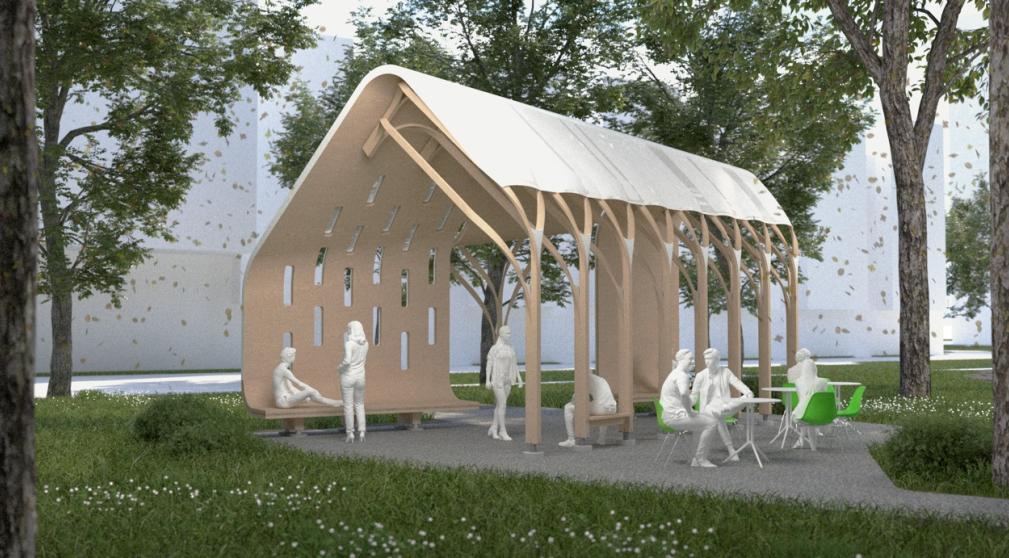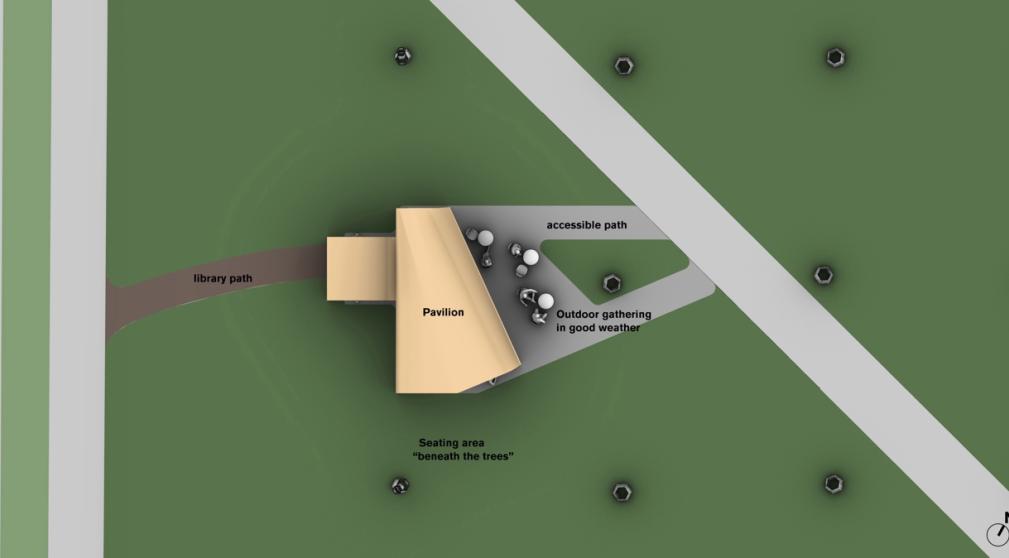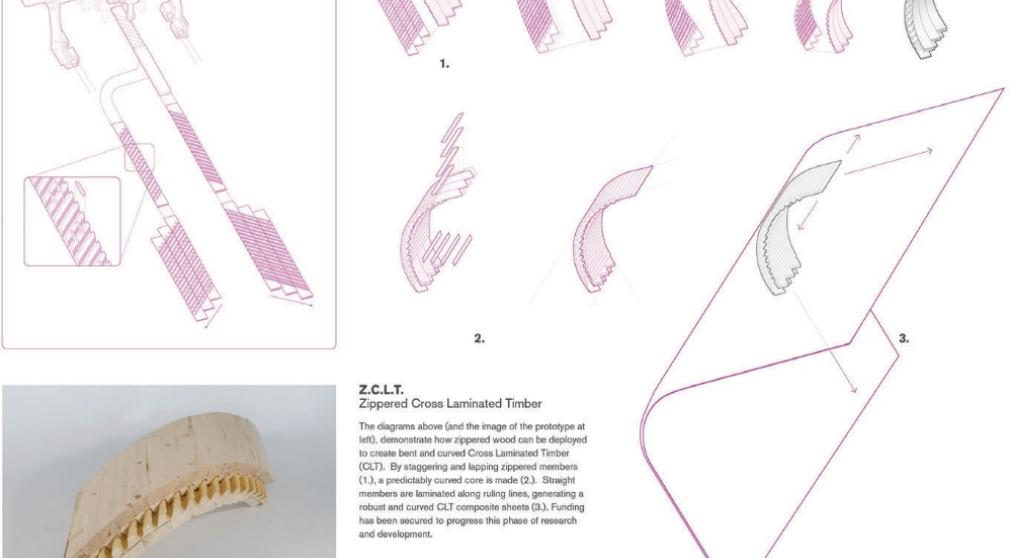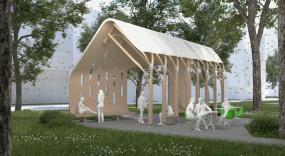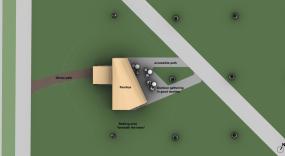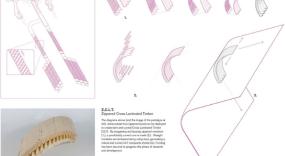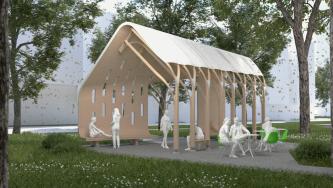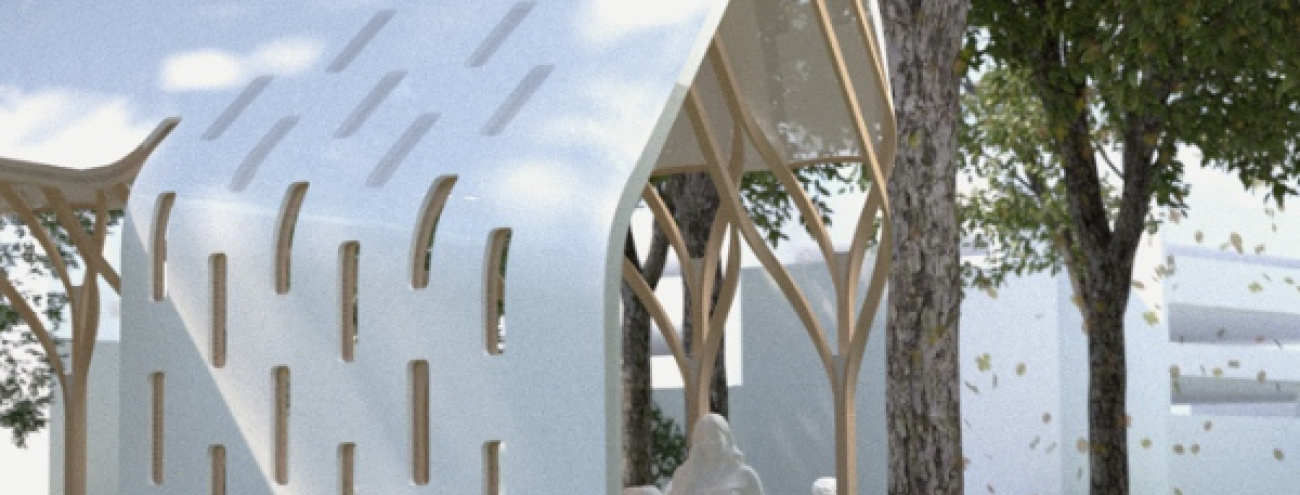
Creating an inclusive, climate and COVID-resilient outdoor learning space @ UBC
The Class of 2020’s gift to UBC, this pavilion will pilot innovative and environmentally responsible technologies and provide a new model for flexible, outdoor learning spaces on campus.
Project Team
Blair Satterfield, Associate Professor, and Chair, Architecture. Director, HiLo Lab, SALA
Carole Jolly, Director of Community Development and Transportation, Campus & Community Planning, UBC
Graham Entwistle, Workshop + Digital Fabrication Supervisor, SALA
The class of 2020 finished their time at UBC in an unprecedented way: forced to be physically apart due to a pandemic, contemplating issues of discrimination and inclusion, and weathering an unprecedented climate-related heat wave. As a parting gift, the class of 2020 proposed a temporary Outdoor Learning Space and Pavilion to support new ways of learning and nurturing community on campus.
The Pavilion will be located in the Bosque in central Vancouver campus, and provide seating, cover, comfort, and basic infrastructure. The design will have a light touch on the land, protecting the surrounding trees, and will address human comfort, energy efficiency and low-carbon materials through innovations developed by UBC research groups such as the UBC HiLo Lab, UBC Design Build, and the Building Decision Research Group. Recent research has shown that reusing wood waste in innovative architectural projects significantly reduces construction-related emissions, highlighting the potential of low-carbon materials1. Innovation created by UBC researchers include:
- Zippered wood, a new fabrication technique to twist and bend wood and waste wood into folded structural elements, aims to extend the useful life of wood, increase spans & load efficiencies, simplify construction and reduce carbon emissions.
- Thermal comfort technology, open-air radiant cooling and heating technology can be embedded into the wood structure for targeted and concentrated, energy-efficient heating and cooling.
Once built, in addition, to will assess the performance replicability of the innovations. It will also allow UBC to investigate how outdoor structures can enable flexible learning spaces, develop sustainable and effective solutions for the campus, and inform future approaches to consider outdoor learning spaces.
The Outdoor Pavilion will contribute to UBC's ongoing efforts to create innovative, sustainable, and inclusive campus development. It also has the potential to make significant contributions beyond UBC, serving as a model for other universities and organizations looking to create outdoor learning and gathering spaces. The technologies piloted within the Pavilion have significant potential for commercialization and use within the local and national building industry.
